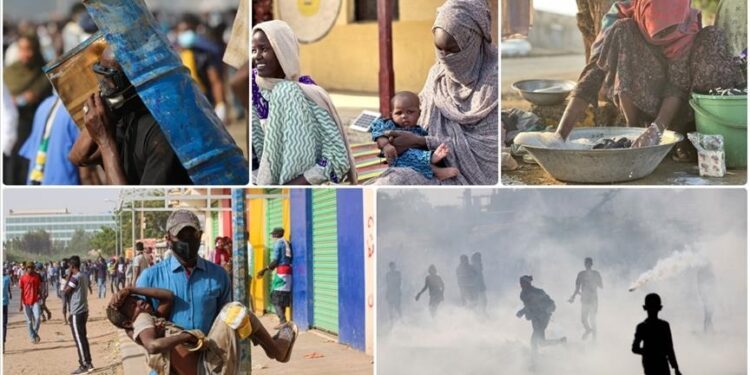HAMILTON, Canada
The UN on Wednesday warned about a rapidly deteriorating humanitarian crisis in South Sudan with nearly 80% of the population requiring humanitarian protection and assistance.
“South Sudan is indeed in the grips of a growing food insecurity crisis, a climate crisis, and an economic crisis,” Edem Wosornu, director of the operations and advocacy division at the UN’s Office for the Coordination of Humanitarian Affairs (OCHA), told a Security Council session on South Sudan.
Describing the situation as “a perfect storm of stressors,” Wosornu urged immediate, decisive action to prevent further escalation.
“Without immediate action, things will only get even worse in the weeks and months ahead,” she said.
Wosornu further revealed that “more than 9 million people — 76% of South Sudan’s population — require humanitarian protection and assistance.” Of these, 54% are children and 27% are women.
“A total of 7.1 million people are acutely food insecure, an increase of around 1.5 million people since last year,” she said, adding that 2.5 million children and women are at risk of acute malnutrition, a figure expected to rise to 2.7 million by December.
Saying that South Sudan’s plight is exacerbated by a deepening economic crisis, she said, “This has been largely triggered by the cessation since February 2024 of most oil exports through Sudan following the damage of the pipeline due to the conflict.”
Compounding the crisis is the displacement caused by the conflict in Sudan, as she said that “almost 780,000 people have fled to South Sudan” since April 2023, with over 580,000 of them being South Sudanese returnees.
Wosornu noted that these individuals “are often malnourished, in poor physical condition, and require life-saving assistance,” with the majority being women and children who “require specialized support from the effects of trauma and gender-based violence.”
She further told the Council that the security for humanitarian workers in South Sudan remains perilous.
“It is worth reminding this Council that South Sudan, unfortunately, remains one of the most dangerous places for humanitarians to operate,” Wosornu stated, adding that at least 237 humanitarian access incidents were reported during the first half of 2024 where 111 of those incidents, 46% of the total, were violence against aid personnel and assets.
Wosornu emphasized that there is still a window to act despite the “bleak outlook.”
She outlined three critical areas requiring urgent attention: helping South Sudan achieve political and economic stability, addressing and mitigating the effect of the war and leveraging the country’s strong humanitarian capacity to tackle food insecurity and prepare for severe flooding.
‘Perfect storm is gathering in South Sudan’
Urging all member states to reinforce their commitment to peace and stability in South Sudan, Wosornu said, “The pathway to recovery is through sustained investment in resilience and indeed development.”
“The time to act is now,” she said.
Nicholas Haysom, Special Representative of the Secretary-General for South Sudan and Head of the UN Mission in South Sudan (UNMISS), cautioned the Council that “a perfect storm is gathering in South Sudan as regards its humanitarian and economic outcome.”
Saying that the confluence of crises converging in South Sudan has led to a protracted humanitarian emergency, Haysom said: “This is reflected by chronic food insecurity, a spillover of the Sudan conflict into South Sudan resulting in the movement so far of 750,000 refugees and internally displaced people, uncertainties in the face of critical political events necessary for a peaceful transition, and a rapidly deteriorating economy exacerbated by the rupture in critical oil infrastructure and oil revenue.”
“When taken together, it could push the country to a tipping point, and all during a time when the people of South Sudan are embarking on a delicate phase of nation-building,” he noted.
Haysom also urged members of the Security Council and international partners, including financial institutions, to intensify efforts to alleviate the mounting pressures on the South Sudanese people.






